

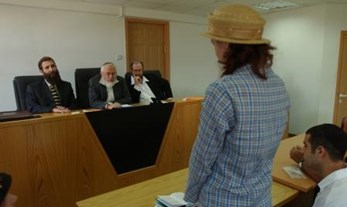
The End of the Chief Rabbinate?
Written By: Dr. Shuki Friedman
According to Dr. Shuki Friedman, the rabbinate's failure to provide adequate religious services caused the current trend towards privatization of religious services, which is creating a de-facto separation between religion and the state.

Israel Should Recognize Judaism's Main Denominations
Written By: Yohanan Plesner
IDI President Yohanan Plesner writes that Reform, Conservative, Orthodox, Reconstructionist and secular Jews are all members of the Jewish people. The Israeli government must grant equal recognition to the central movements within Judaism, including equal funding for all.

Should Jews Pray on the Temple Mount Today?
Written By: Prof. Yedidia Z. Stern
Professor Yedidia Stern argues that the question of how we should relate to the Temple Mount is more complex than any other issue on the public agenda in Israel. This question must be discussed in three parallel dimensions—religious, national, and liberal. This poses a serious challenge, which must be approached with the utmost sensitivity.
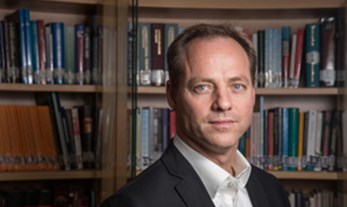
Democracy's Hatred for Hate
IDI President Yohanan Plesner writes that while democracy may be considered a fragile regime that has difficulties coping with extremism, there are still powerful means in the democratic toolbox that can and must be utilized to deal with the threats of homegrown terrorism and hatred of the "other", which can undermine Israel's character as a democratic state.

Keeping Kosher: By Faith, Not By Force
Written By: Dr. Shuki Friedman
To what extent should the Rabbinate interfere in a citizen's plate? Dr. Shuki Friedman, argues that kosher supervision should be based on trust not coercion, and warns that the attempt to preserve the Chief Rabbinate's monopoly on the kosher laws is a symptom of a larger problem.

The Challenges of Promoting Employment in the Ultra-Orthodox Community
Written By: Dr. Gilad Malach
Dr. Gilad Malach, who heads IDI's research program on the ultra-Orthodox community in Israel, discusses the barriers that weigh down attempts to increase the employment rate in the Haredi community and suggests possible solutions.

The New Journalism: How Digital Media Changed the Rules
Written By: Dr. Tehilla Shwartz Altshuler
On Wednesday, May 27, 2015, IDI Research Fellow Dr. Tehilla Shwartz Altshuler, head of Media Reform and Open Government Projects, chaired a session entitled “The New Journalism: How Digital Media Changed the Rules” at an international conference in Jerusalem. On this page, the session can be viewed in its entirety.
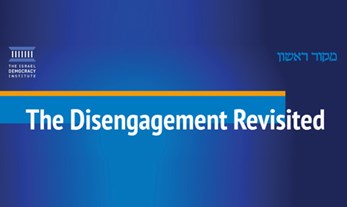
The Loss of Naïveté: The Impact of the Withdrawal from Gaza on Religious Zionism
Written By: Yair Sheleg
Ten years after the disengagement from Gaza, Yair Sheleg, head of IDI's Religion and State program, explores the impact of the withdrawal from Gush Katif under the leadership of Ariel Sharon on the Religious Zionist community in Israel.

Criteria for Evaluating the Success of the Israeli Attorney General
Written By: Dr. Guy Lurie, Prof. Mordechai Kremnitzer
In an article in The Marker, Prof. Mordechai Kremnitzer and Dr. Guy Lurie recommend ways of ensuring that the performance of the Israeli Attorney General is evaluated on a regular and systematic basis.
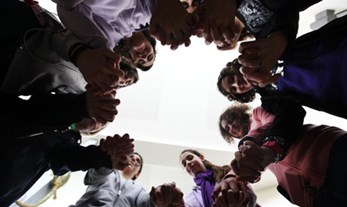
Education for Democratic Values and Combating Racism through Education
Written By: Prof. Mordechai Kremnitzer, Noam Lautman
IDI Vice President Prof. Mordechai Kremnitzer and Noam Lautman, Chairman of the Lautman Fund, recommend ways in which the Israeli educational system can strengthen democratic values, and warn that students should not be forced to choose between two competing alternatives—Israel as a nation-state or as a "state of all its citizens."

IDI Submission to the UN's International Commission of Inquiry on the 2014 Gaza Conflict
Written By: Prof. Amichai Cohen
Submitted to the UN International Commission of Inquiry on February 11, 2015, this document details the role of lawyers within the Israeli Defense Forces in implementing and enforcing International Humanitarian Law within the IDF.
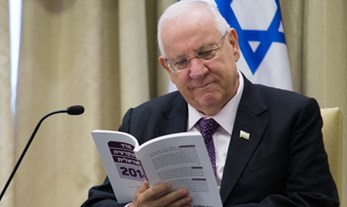
Rivlin Under Fire
Written By: Dr. Amir Fuchs
Ever since he was elected, President Reuven Rivlin has been under attack from the extreme right wing in Israel. Why should a right-wing President be under attack from the right? IDI Researcher Dr. Amir Fuchs explores the origins of the animosity towards Israel's liberal, right-wing President.

High Time for a Fair Israeli Asylum Regime
Written By: Prof. Reuven (Ruvi) Ziegler
As World Refugee Day approaches, Dr. Ruvi Ziegler argues that it is high time for Israel to adopt a fair asylum policy that would mitigate the predicament of Eritrean and Sudanese nationals.
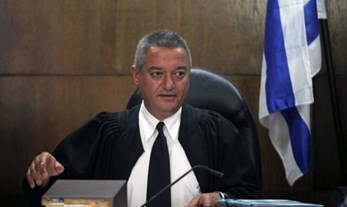
Appointing Arab Judges to the Courts in Israel
Written By: Dr. Guy Lurie
In an article in Mishpat U'Mimshal, IDI researcher Dr. Guy Lurie addresses the issue of the lack of Arab judges in Israeli courts. This abstract presents the main issues discussed in the article.

An Open Letter to the New Minister of Religious Services
Written By: Dr. Shuki Friedman
As the new government begins its work, Dr. Shuki Friedman, Director of IDI's Center for Religion, Nation and State offers recommendations to MK David Azoulay, Minister of Religious Services, on how to keep the rabbinate relevant and improve its standing in Israeli society.

Override: A Serious Blow to Democracy
Written By: Dr. Amir Fuchs
Dr. Amir Fuchs argues that an override of Supreme Court decisions should be stoutly resisted by democrats from all parts of the political spectrum.

Israel's 34th Government: A Profile
Written By: Prof. Ofer Kenig
On May 14, 2015, the 34th government of the State of Israel—the fourth Netanyahu cabinet—was sworn in. In this article, IDI Researcher Dr. Ofer Kenig presents an overview of the process of forming the government and the profile of its members.

The Haredi Draft: Snakes and Ladders
Written By: Prof. Yedidia Z. Stern
Prof. Yedidia Stern analyzes the problems with past proposals to integrate the ultra-Orthodox sector into the IDF, and proposes a new solution.

Don't Increase the Number of Cabinet Ministers
Written By: Prof. Ofer Kenig
Dr. Ofer Kenig argues that amending the clause of the Basic Law that limits the number of ministers in the next government to 19 is not only unnecessary, but also brings about a sense of déjà-vu that the Knesset is defying the rules of the game once again.

Coalition Building: How Long Is Too Long?
Written By: Prof. Ofer Kenig
How long is too long to form a coalition? Dr. Ofer Kenig looks at how long it takes to form a government in different parliamentary democracies.

The 2015 Knesset: Can New Brooms Make a Clean Sweep?
Written By: Dr. Chen Friedberg
Israel's 20th Knesset will have 39 new members. Will this infusion of new blood improve the Knesset's performance? Dr. Chen Friedberg explores some of the issues that may impede the ability of these new Knesset members to "clean up" the Knesset.
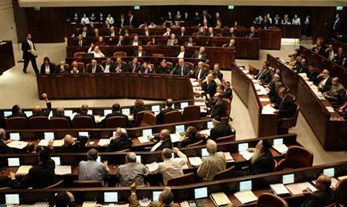
The Social Composition of the 20th Knesset
Written By: Prof. Ofer Kenig
On Tuesday March 30, 2015, the 120 members of the 20th Knesset will be sworn in. About one third of them are new faces, and almost a quarter are women. How many religious MKs are in the Knesset? Which is the "youngest" parliamentary group? Dr. Ofer Kenig explores the demographic attributes of the 120 members of Knesset.

The 2015 Elections and Israeli Governance
Written By: Yohanan Plesner
In a Jerusalem Post op-ed, Yohanan Plesner notes that the 2015 Knesset election demonstrates that structural changes matter, and argues that further stability can be fostered by automatically making the head of the largest party prime minister.

Who Doesn’t Vote in the Israeli Knesset Elections?
Written By: Ella Heller
What has contributed to the decline in voter turnout in Israel? This article explores possible causes and presents a profile of the non-voters in the 2013 Knesset elections. The findings that it reports raise concerns about the value of equality in political participation in Israel.

Flash in the Pan Parties in Israel
Written By: Dr. Assaf Shapira
"Flash in the pan" parties suddenly spring up, run for Knesset with varying degrees of success, and disappear from the political map soon after. This article discusses this phenomenon in Israel in the past and in the context of the 2015 elections.

The Intra-Party Democracy Index 2015
Written By: Prof. Gideon Rahat, Dr. Assaf Shapira
The findings of the Party Democracy Index, a tool designed to evaluate the level of democracy within political parties, which was designed by IDI's political reform research team. The findings have been released in advance of the 2015 Knesset elections.
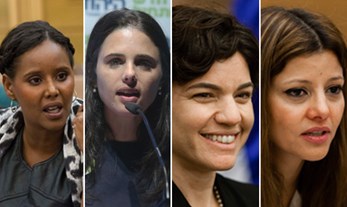
Women's Representation in the Knesset: Still Increasing But Not Fast Enough
Written By: Prof. Ofer Kenig
Dr. Ofer Kenig analyzes the predicted rate of representation of women in the 20th Knesset as compared to previous Knessets and as compared to the rate of women's representation in the parliaments of other democracies.

The Elephant in the Room: Relations between Religion and State in Israel
Written By: Prof. Yedidia Z. Stern
Prof. Yedidia Stern urges Israel's leaders to stop tiptoeing around the core issues of religion and state in the Knesset election campaign, and to take a clear position on the matter.

New Partners in the Struggle Against Terrorism
Written By: Prof. Yedidia Z. Stern
Yohanan Plesner argues that as Denmark grieves for a terror attack on its soil, Israeli leaders must broadcast "a message of partnership among democracies battling terrorism without sacrificing their democratic values."

The Researched-based Responses to Troublemaking MKs
News from the Knesset in the last week raises myriad questions about democracy, and Israel Democracy Institute president Yohanan Plesner tries to provide answers.

